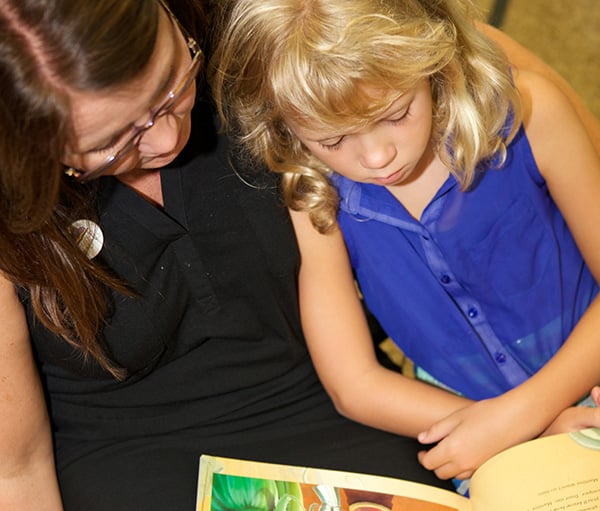Parents Urged to Read with Young Students During School Closure

lmcdonald@thebrunswicknews.com
With schools closed due to the coronavirus health crisis, it’s become more important than ever for parents and guardians to play an involved role in their children’s literacy education.
The Children’s Reading Foundation of Georgia, a nonprofit recently established in Glynn County, is among many local groups encouraging parents to spend time daily reading with their children.
Literacy skills developed before third grade often determine a student’s learning abilities and success throughout life. Teachers focus on this crucial development daily.
With schools closed, that responsibility falls to parents.
“At The Children’s Reading Foundation of Georgia, our motto is ‘Read together 20 minutes every day,’” said Linda Muir, president and CEO of the Children’s Reading Foundation of Georgia. “Daily reading for at least 20 minutes has been proven to make a big difference in children’s readiness for kindergarten and in their grade level reading proficiency after they enter Pre-K or kindergarten through the third grade. Reading on grade level by the end of third grade is important for later success in school and graduating from high school.”
The Children’s Reading Foundation offers numerous resources to support literacy education. Muir encouraged families to take advantage while schools are closed during the coronavirus health crisis.
Reading while out of school will allow students to progress every day toward grade level reading proficiency.
“Reading is a ‘use it or lose it’ skill, especially as children are learning to read,” Muir said. “If the children were in school, they would be progressing every day in developing their skills. In addition to the worksheets and homework they will have from their teachers to work on each day, it is a good idea to add extra reading to reinforce what they are learning and to keep them moving forward.”
Reading can also be an easy and fun way to keep young children entertained while at home.
“Small children have a short span of attention so it is a good idea to read with them in short sessions,” Muir said. “We say, ‘Read five minutes now, five minutes later, and 10 minutes when it is bedtime.’ Make reading a fun thing to do anytime you have a few minutes.”
There are plenty of ways to keep students reading at home, Muir said.
“Let kids help with daily household activities and then read to them for a few minutes before you move on to the next thing,” she suggested. “For older children who are already in grade school, reading in longer sessions is a good time to enjoy just sitting down and being together one-on-one.”
She recommends letting children select a book they’d like to read and then taking turns reading so they can demonstrate what they learned.
“In families with several children, the older children might enjoy reading to the younger ones, or you could take turns with the older ones reading to the younger ones,” Muir said. “Children’s games often include cards that need to be read, and this is another way to include a bit of reading just as a part of a game. Kids love games and riddles so playing word games is both entertaining and instructive.”
With younger children, frequent repetition teaches the fundamentals of reading and vocabulary.
“Children need to hear language and words every day to build their vocabulary and their knowledge of how words go together to tell a story,” Muir said. “When reading picture books to young children, take time to look at everything that is in the picture and ask questions about what is happening.”
If there’s a new word on the page, Muir recommends saying the word several times and explaining its meaning.
“The next time you read that book, stop again to talk about that word and ask your child if she or he can tell you what it means,” she said. “That is the way they will learn new words and build their vocabulary, which is a fundamental building block toward grade level reading proficiency.”
More information and resources are available at Read20Georgia.org.
The Georgia Family Connection Partnership has also created a page with numerous statewide resources for parents. The resources include information from the Centers for Disease Control and Prevention, the Georgia Department of Education and others. Digital learning resources, meal and financial aid information and literacy resources are included on the website, gafcp.org/coronavirus.
The time spent reading now will determine a student’s success long after the health crisis passes, Muir said.
“While kids are at home during this time of school closures due to COVID-19, daily reading is more important than ever to be sure that kids will not lose ground and have to catch up when they return to the classroom,” Muir said.
Read the story at thebrunswicknews.com.
